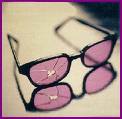The take home message: If your company sells a product that bears a patent number, you need to read this post in its entirety. Much has been written in recent months about false marking lawsuits, most of these in the form of "urgent legal alerts" by law firms that calmly deconstruct the appellate court rulings (this one is illustrative). At the end of the day, these articles likely do not look very "urgent" to business people like yourself because most business people do not engage themselves with patent law generally, let alone something as arcane as false marking. So, even though the subject excites us a patent experts, we really cannot expect you to get excited about something that does not seem to affect your ability to conduct business today. However, if your business is a likely target of a false marking lawsuit it will cost you big bucks almost immediately.
Business Can’t Hide from False Patent Marking Lawsuits: Here’s How to Predict If You Might be Sued
Much Ado About Patent Marking: Why It is So Hard for Corporations to Get It Right and Why False Marking Lawsuits Might be a Good Thing Overall
 It is fairly rare for patents to make hit the radar screen of mainstream news outlets but, recently, there has been much space allotted to the issue of patent mis-marking and lawsuits being brought by third parties for "violation" of the law requiring that products cannot be marked with an incorrect patent number. Indeed, the usually substance-free local paper in my mother's Southwest Florida community reported about the flood of patent mis-marking lawsuits. And, it is no wonder that the undoubtedly arcane issue of patent marking has reached the status of "news" in a small-town paper given the huge number of cases currently pending in the federal courts. It seems as if patent marking litigation may be the new business model for trial lawyers who are
It is fairly rare for patents to make hit the radar screen of mainstream news outlets but, recently, there has been much space allotted to the issue of patent mis-marking and lawsuits being brought by third parties for "violation" of the law requiring that products cannot be marked with an incorrect patent number. Indeed, the usually substance-free local paper in my mother's Southwest Florida community reported about the flood of patent mis-marking lawsuits. And, it is no wonder that the undoubtedly arcane issue of patent marking has reached the status of "news" in a small-town paper given the huge number of cases currently pending in the federal courts. It seems as if patent marking litigation may be the new business model for trial lawyers who are
For Inventor of 21 Patents, Patent Troll Litigation Not Very Lucrative
Recently, I wrote a post on why I think that patent litigation is not a viable business model for inventors. Given a realistic deconstruction of the costs and possible damage awards, I concluded that, in most situations, it is not realistic for an inventor to presume that she will "hit the jackpot" by suing infringers and extracting settlement or damage awards. I obtained some pushback from this post, mostly from patent litigation lawyers, who contend that I am wrong in my view that patent litigation does not pay for inventors. Of course, everyone is entitled to their opinion, and I respect the views of others, however, no one who objects to my (somewhat) negative view of patent litigation as a business model, has provided me with numbers to discount my economic analysis of patent litigation. This recent post from The Prior Art blog entitled "Revealed! How Much Money a
A Patent Reality Check: Litigation Not a Viable Revenue Source for Most Inventors
The ability of an intrepid inventor to strike it rich from a great idea seems to be embedded in the DNA of many Americans. Perhaps this view emanates from the presence of patents in the US Constitution, which could create a feeling that US citizens have an "inalienable right" to use patent protection to their advantage. Alternatively, people may perceive the occasional media reports of successful inventors and substantial patent litigation awards as a signal that patents can serve as a path to wealth for those with great ideas (certainly, this is the Hollywood view). In truth, however, getting rich merely from a patent is a rare occurrence--maybe not as low a probability as winning the lottery, but the odds are incredibly long that any person can make money from a patented idea alone. Think about it: if all it took was a patent to make someone wealthy, there would be
The NY Times is Wrong: Patent Auctions Do Not Provide Indendent Inventors with “Protection”

- Patent auctions will do little to help independent inventors sell their patents
Chief Circuit Judge Michel Agrees with Me: NPE’s (aka "Patent Trolls") are Not Necessarily "Illegitimate"
On his great 271 Blog, Peter Zura posted excerpts of the Chief Circuit Judge Michel's keynote address at the FTC hearings on "The Evolving IP Marketplace" last December where Judge Michel addressed the state of patent law and patent reform. Anyone interested in patents, the USPTO and patent reform should take a look. I posted a comment on this post, and am reposting it here (with additions) along with Judge Michel's comments about NPE's as presented on the 271 blog. Specifically, I was intrigued by Chief Circuit Judge Michel's view that NPE's ("non-practicing entities" also known by the pejorative term "patent trolls") should not be viewed as somehow "illegitimate." He apparently believes that by allowing those who are on the receiving end of NPE lawsuits to control the argument by "naming and framing" (my phrase) the problem as "trolls" is not helpful. Here is the excerpt of this part of
A Response to PWC’s "Starry-Eyed" View of the Value of Litigation as Effective Way to Monetize Patents
 I recently became aware of this patent litigation analysis prepared by PriceWaterhouseCoopers (“PWC”) (hat tip: Marcus Malek of the Intangitopia blog). The report appears to be rigorously prepared from data obtained from a large number of reported patent litigation cases dating from 1995. I read this report with interest and think that anyone who is interested in the ROI of patent enforcement should read it also. The data provide a wealth of information for anyone even thinking about bringing a patent case or who is involved in defending against claims of patent infringement.
Although the data in the PWC provides informational value, I nonetheless have a big problem with the following assertion that is prominently presented on page 18 under the title “What This Means for Your Business”:
"In light of the findings in this study, patent
I recently became aware of this patent litigation analysis prepared by PriceWaterhouseCoopers (“PWC”) (hat tip: Marcus Malek of the Intangitopia blog). The report appears to be rigorously prepared from data obtained from a large number of reported patent litigation cases dating from 1995. I read this report with interest and think that anyone who is interested in the ROI of patent enforcement should read it also. The data provide a wealth of information for anyone even thinking about bringing a patent case or who is involved in defending against claims of patent infringement.
Although the data in the PWC provides informational value, I nonetheless have a big problem with the following assertion that is prominently presented on page 18 under the title “What This Means for Your Business”:
"In light of the findings in this study, patent
Confessions of a Non-Recovering Patent Troll Enabler
I came across this TechDirt article: Exposing The Patent Troll Playbook... And How To (Almost) Beat It (h/t Ron Carson, VP of Marketing at Innovation Asset Group). This is an insider's account of what it is like to be the victim of a so-called "patent troll". Perhaps better than the article itself are the comments which make it clear how passionate people are about the topic of patent trolls. This is recommended reading, if just for the entertainment value of the comments. Reading the TechDirt article made me recall my time as a junior litigator at a well-known Atlanta law firm. As a very green (and tired) young attorney, I sent many "licensing offer letters" for the AudioFax Company. In this role, I was an enabler of a very successful patent troll. And, as set out in this post, I have continued to enable patent trolls throughout my more
If You Can’t Beat ‘Em, Join ‘Em: Patent Strategy as a Business Model
In the May 12, 2008 New Yorker Magazine article, Malcolm Gladwell posits that there is no shortage of ideas. Rather, he indicates that what is needed is disciplined processes centering on invention and execution of those ideas through into the marketplace. Mr. Gladwell's article (which I believe is a must-read for those of us in the "innovation game"), goes about proving his hypothesis by reporting on the inventive processes of the principals of Intellectual Ventures. (Intellectual Ventures website is linked here: http://www.intellectualventures.com/).Intellectual Ventures is a new type of company. Its premise is that highly skilled scientists, engineers and other types of "big thinkers" can learn enough about a technical or human problem, such as a common medical condition, to invent possible solutions when in a "brainstorming session" with other high level thinkers of varying disciplines. Intellectual Ventures then files patent applications for the most promising of those solutions,


